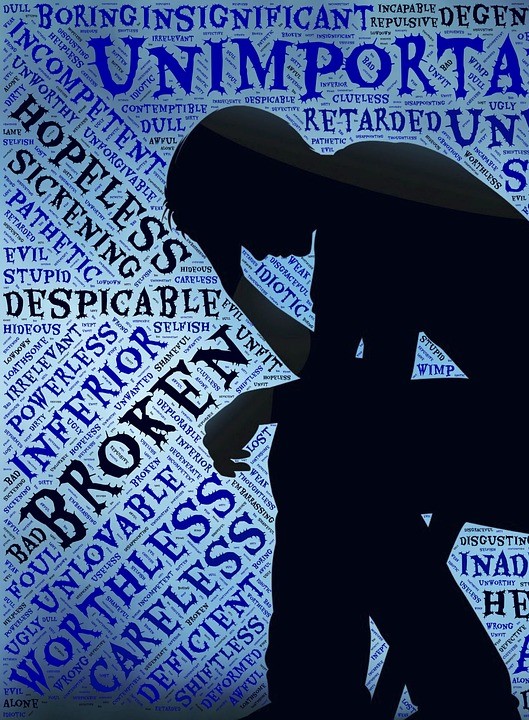Millions of people all around are struggling with a type of depression that is almost completely invisible. It’s called High Functioning Depression or HFD. These people might be lawyers, doctors or CEOs. You might even be one of them. Many psychologists associate high functioning depression with persistent depressive disorder, which is a prolonged state of depression. Those with high functioning depression may not feel as helpless as those with clinical depression, but their depression does affect, tremendously, their quality of life. It minimizes their interest in everything, including social events with friends and family. High functioning depressives will go to school or work and socialize when necessary, but once they’re done with their responsibilities, they’ll withdraw themselves. Here are 16 signs you may have high functioning depression.
Those with HFD might actually be more intelligent

New research has shown a link between HFD and an increase in intelligence. According to a study, over-developed intelligence might be linked with dangers and losses that punctuate our lives. Somehow it makes a lot of sense that geniuses tend to struggle with depression.
Those with HFD might be perfectionists

Professor Steven Hubert of Psychology revealed in a recent article that if he was dealing with someone with HFD he’d probably hear something about being kind of perfectionistic. It’s almost as if those with HFD battle their issues by focusing and improving on every little detail.
Those with HFD might have a family history of depression

In a recent study, it was found that depressed children and adolescents with high potential often had a family history of depression and bipolar disorder. What this means is that if you’re a high achiever and you’re suffering from depression, it might just be genetic and something you can’t control.
Those who have HFD often try to endure it without getting help
Healthcare professionals know that HFD can be very hard to diagnose This is simply because most of the time people try to endure it without getting help. High functioning people might be in denial or they might not want to let their depression get in the way of their busy lives.
HFD can gradually build up

Doctors who have dealt with HFD know that it can really sneak up on people. It slowly but surely gets worse and the symptoms might grow in intensity without people noticing. Some doctors have described it as a slowly increasing temperature. Before you know it, you’re getting fried.
Those with HFD don’t engage in normal hobbies and activities

Professor of Psychiatry Micheal These states that in regards to HFD, you may notice that there’s a hole in this person’s extracurricular life. What he means is that the person only does what they are obligated to do. Being a parent, a spouse, or a community member is absent as are any hobbies.
Those who think they have HFD
HFD is very tricky to diagnose and it shares a lot of similarities with burnout. Burnout, as Katy Morton states in one of her interviews with Jacksepticeye, is when you feel the reward is not worth the effort you’re putting in So it’s a more casual result of working too hard whereas HFD can occur in individuals without burnout signs. HFD is simply feeling depressed with or without doing anything.
People with HFD might have symptoms of clinical depression

HFD is, of course, a type of depression and as such, people suffering from HFD might display the symptoms of clinical depression. These include feeling empty, sad, guilty, worthless, restless or even suicidal. Other symptoms include changes in appetite and sleeping patterns.
Those with HFD might be more creative

Some of the most talented artists in the world suffer from HFD. And according to recent research, there is a strong link between HFD and creativity. According to a study from 2012, It would seem that those with HFD use their depression to fuel their art, passions, and creativity.
HFD is not a real clinical diagnosis
That’s right, you won’t find HFD listed along with other recognized mental disorders. That might change soon. But for the most part, it falls under the category of Dysthymia. HFD can last for two to three years and it can easily progress to major depression. HFD is treatable but those who have it need to get help If people put on a brave face and try to endure it, it can lead to much more serious issues down the road.
Concerned with time

Although you’re achieving your goals and completing all your tasks, you feel like you’re wasting your time. Even if you find a new hobby or job, it still feels like a fool’s errand, and you wonder if all the time you’re investing in such activities is worth it.
You constantly criticize yourself

Because you feel like you’re not achieving much, you criticize yourself. Your expectations are too high so you push yourself to the limit, affecting your state of mind.
You feel misunderstood

Since most high functioning depressives can maintain a job, a house, and their responsibilities, people underestimate how much anguish they’re going through, minimizing their feelings simply because they don’t act like the typical depressed person.
You feel saddened

It’s normal to feel sad from time to time, but if you’re sad or numb most of the time even while participating in fun activities, you may be suffering from high functioning depression.
You have unhealthy coping strategies

Since you overwork yourself, you may lean towards drugs or alcohol to deal with stressful situations. Many high functioning depressives turn to self-destructive habits to clear their minds.
You have excessive pastimes

Along with any unhealthy coping habits you have, you may also find yourself constantly gaming or binge-watching tv series, among other things. Although these activities seem normal, the problem is you’re actually using them to escape reality. High functioning depression is difficult to notice because those who suffer from it are still able to continue with their responsibilities. Since they don’t act like the typical depressive person, they believe that they’re truly okay, but in reality it’s not okay to live life feeling numb, sad, and constantly criticizing yourself. If you do have high functioning depression, try to find the root of it. Only by doing so can you truly live happily.



